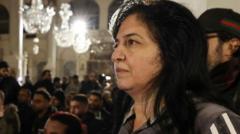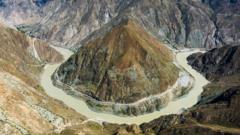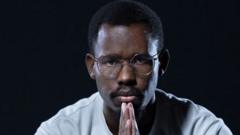In the wake of a government ousting in Bangladesh, student activists alongside seasoned experts are striving to initiate democratic reforms amidst ongoing political and social turbulence, seeking stability and justice for the nation.
Students Lead the Charge in Bangladesh's Democratic Revival

Students Lead the Charge in Bangladesh's Democratic Revival
A historic struggle for democracy in Bangladesh sees the youth taking center stage alongside experienced technocrats following the recent overthrow of Sheikh Hasina's government.
In Bangladesh, a remarkable political transition unfolds as youthful activists join forces with experienced technocrats to reshape the nation's future after the recent ousting of Prime Minister Sheikh Hasina. In an improvised office space filled with construction materials, a group of university students is strategizing to steer their country towards a sustainable democracy, envisioning a political landscape characterized by free elections and social justice.
Only months ago, these young leaders were part of the mass protests that led to Hasina's fall from power, a leader whose lengthy rule had spiraled into authoritarianism and corruption. Now, they are motivated to leverage their newfound influence amidst a chaotic political atmosphere. "Our political power is in a very fluid form right now," stated student organizer Arif Sohel, 26, emphasizing a desire for a stable and progressive nation.
However, this ambitious endeavor is fraught with complexity in a country shaped by years of violence and instability. The interim government is made up of a unique blend of unelected professionals and emerging student leaders navigating pressures from various factions. A major political party, previously suppressed under Hasina, is calling for immediate elections before significant reforms can be initiated.
Compounding these challenges, the Bangladeshi populace faces high inflation affecting basic commodities, persistent protests in the capital Dhaka, and heightened tensions with India over communal violence involving minorities. The situation leaves many residents anxious about a resurgence of militant ideologies.
Despite such arduous conditions, the determination of the youth in Bangladesh symbolizes a potential turning point in the country’s ongoing struggle for democracy, underscoring their commitment to an enduring vision for governance reflecting equality and resilience.






















